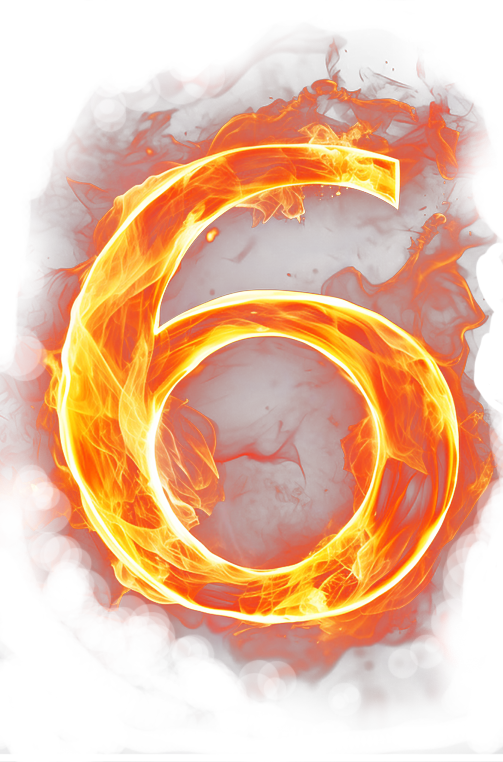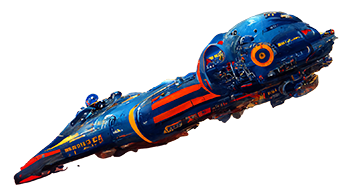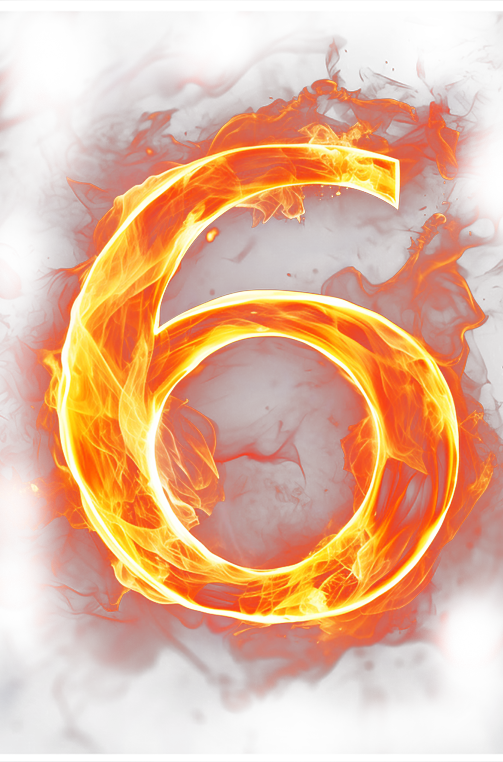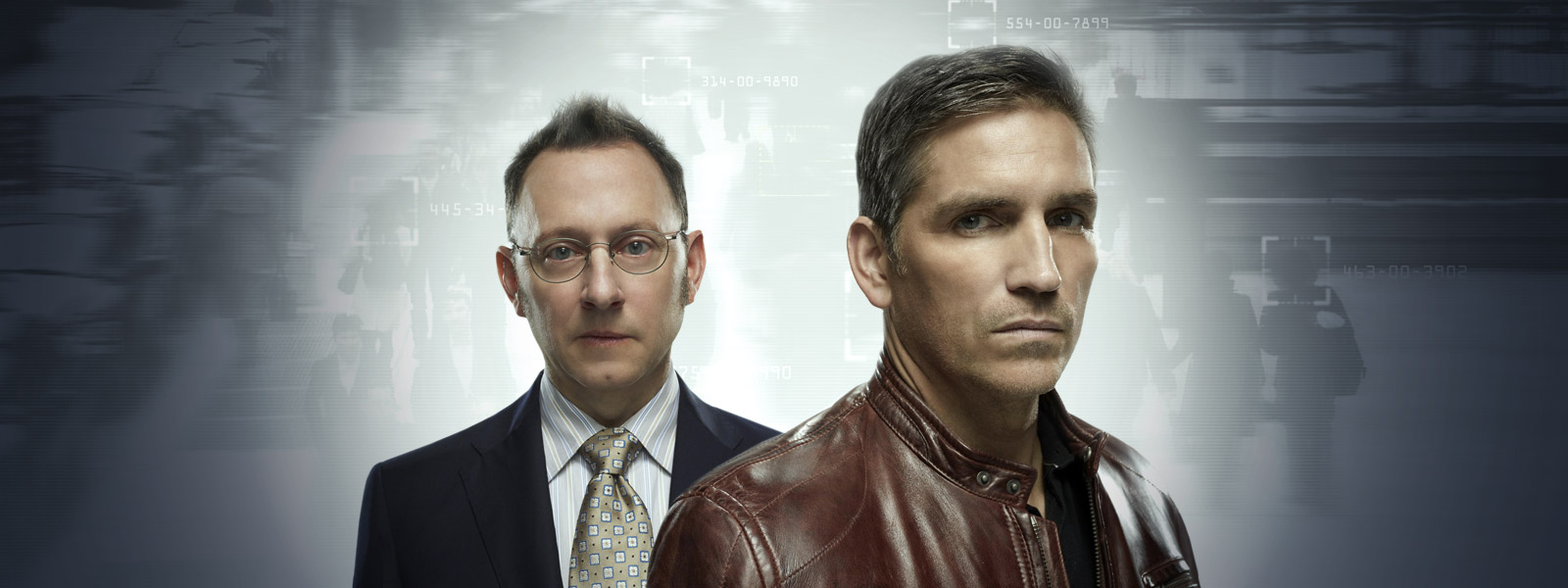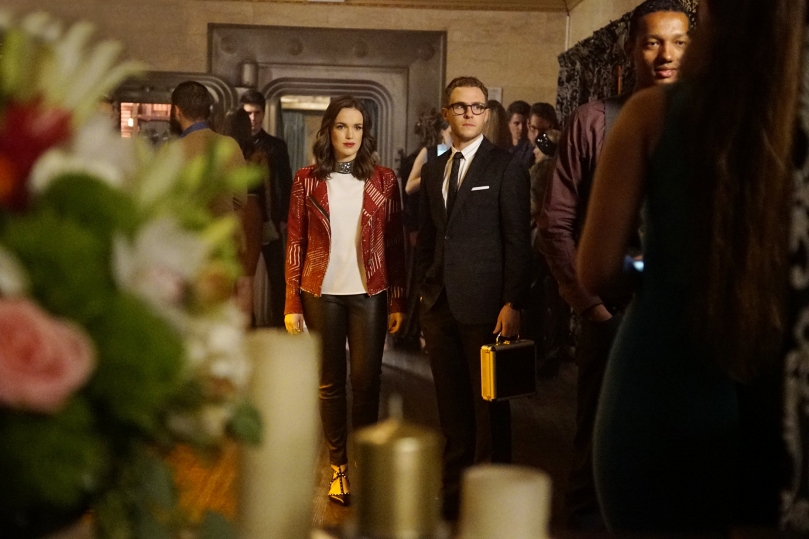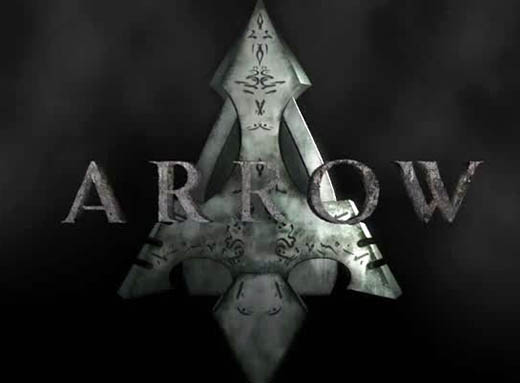The first hour begins with a great offensive launched against the Cylon Colony where Hera is being held. The special effects around the space battle were amazing and while it was cool to see old and new Centurions fighting side by side, the older models looked just a little too CGI to be believable. Watching our favorites do what they do best—Kara leading one strike team, Lee leading another while Tigh and Adama bark orders from the CIC—was a perfect beginning to the end.
Maybe everything would have been fine if we’d just ended with the battle. However, there were still all those pesky questions to be answered and Sci-Fi kept telling us we’d know the truth, so we patiently waited for our resolution.
And we got angels.
It’s not that I don’t believe the Kara Thrace that returned at the end of “Crossroads, Part II” isn’t different than the Kara Thrace who disappeared into the mandala during “Maelstrom.” It isn’t that I don’t believe she had a destiny and that it was to lead the fleet to earth.
What I don’t believe is that Season four Kara and Head Six and Head Gaius, who have been with us from almost the beginning, are the same. Everyone kept referring to them as angels and it just doesn’t track.
Head Six has been dictating Gaius’ actions since “33.” Without her intervention, he never would have secured a nuclear warhead as part of his Cylon detector or given said warhead away to Gina. Without the nuke’s detonation, the Cylon fleet would never have found the settlement on New Caprica, leading to a hellish year in which Gaius was president—something else that wouldn’t have happened without her interference. If Head Six, and in turn, Head Gaius, are being directed by their God, then what is the justification for the deaths of ten thousand humans? What is their justification for the cold wasteland of New Caprica and the suffering inflicted upon humanity due to the Cylons’ failed attempt at unity? It seems that any god that would lead his creations down such paths isn’t so much worth knowing.
Plus, let’s not forget Starbuck. The woman who rose from the dead has been integral to the fleet finding not just one earth, but two, and it seems the path to salvation was hardwired into her from a young age—at the knee of her father. Wouldn’t it have been so much cooler if her father had been Daniel, the thirteenth “throw-away” Cylon that Ron mentioned with barely a passing nod and then didn’t pay-off? It’s been reported that Daniel came about due to necessity: Sharon was already known as the no. 8 Cylon model, meaning that no. 7 was unaccounted for. If you add eight with the final five, you get thirteen. Oops, I guess whoever tipped Adama off early on really meant there were thirteen Cylon models. Considering that there were originally thirteen colonies, that actually makes sense, but Ron was quoted this week as saying that Daniel would not play a role in the finale of BSG. (However, he is supposed to play a part in “The Plan” airing this fall.)
Super disappointing. Daniel could have been the convenient and yet, logical, plot device that explained away a lot of the show’s inconsistencies. Like Starbuck and her return from the dead; like Head Six, Gaius and Leoben; even how Hera knew the song and why it was so recognizable to Starbuck.
However, it’s not my job to focus on what could have been done, but rather what transpired. The fact that Kara was able to reconstruct the coordinates to a new home was a great pay-off. The fact that it was a primitive landscape with a tribal society was also nice. The idea that humanity might settle there and try to start over, leaving all their technology behind, was a nice nod to the idea of really getting a fresh start. I particularly loved Lee’s line when reasoning with his father: “Our brains have always outraced our hearts.”
How true for our intrepid Apollo—more on that in a second.
It was great to see Racetrack make good and fire the nukes that ultimately destroyed the Colony. It was terrific to see Boomer make a choice and give Hera back and it was frakkin’ amazing to see Athena waste her with half a mag of ammo. And it was about damn time Tory was exposed for the murderer she was; I’m really glad the Chief snapped her neck for killing Cally. Plus, I was super, super glad that Helo lived. Man, I was going to be really disappointed if he, Hera and Athena hadn’t had a chance for a new life on the surface. And President Romo! Admiral Hoshi! Oh, these are the moments that just make you smile.
The use of the flashbacks on Caprica was still great, although I found Bill and Saul’s to be a little redundant. It seemed anti-climactic to discover that Adama had almost given up his commission for a desk job. In the scenes, it’s obvious he isn’t really waffling—he doesn’t want to retire—but a big deal is made of the fact that he might. Since we know what a hard core Commander he is, I think that screen time could have been better spent.
Like with Lee and Kara. Poor Apollo—his brain has constantly outraced his heart throughout the series. During the continued flashbacks of the dinner party, it becomes obvious that there is an instant connection between Lee and Kara. Watching them pound back shots and share their fears was almost more than my little shippy heart could handle. Watching them have sex on the table with Zak passed out across the room was too good to be true. Which is why Ron didn’t let it happen. However, it is good to see the start of their relationship and how intertwined their lives have always been.
Which makes their parting so much more bittersweet. Similar to the season five episode of “Angel,” “You’re Welcome,” when Cordelia apparently wakes from her months-long coma to help Angel solve a case and get her moment to say goodbye, it appears Kara’s job upon returning to the fleet was to get them to a suitable home and then move on.
How is that fair for her and Lee? It’s a particularly disheartening ending for this couple who have survived more than their share of pain, hurt and heartache and who have suffered more than just about anyone else. It seemed that after all the hell of the past four years, this might finally be their chance for a bright shiny future. Dee was gone, Sam had done his duty and they could finally lay down arms and stop fighting. Instead, Kara vanishes, leaving Lee alone. As a fan of this pairing, I was expecting more. In the end, I was also really sad for Lee; what does he have left now? His father’s gone, Kara has vanished—how will he start over? After everything Captain Apollo has done since the exodus, I wanted more of a reward for him.
Of course, we got more with Roslin and Adama and I feared that might preclude a satisfactory ending for Lee and Kara. Yes, it’s wonderful to see the leaders of the fleet happy and in love. It’s wonderful to know that Roslin didn’t die alone and that Adama was able to love a woman so completely so late in life. However, I have to say their ending was predictable. Was anyone really surprised when he loaded her into the raptor and flew off? Or when she died mid-flight? Or when we saw him staring out at the landscape with her grave in the background? Come on, were you? See, me neither.
Roslin was the dying leader, it was foretold from almost day one. Her death couldn’t have come as a surprise to anyone. And maybe that’s Ron’s biggest problem with trying to wrap everything up—so much of the end was foretold in one form or another. The only way to avoid predictably is to make everything a metaphor; it’s possible, it’s p
rophecy after all.
What if Galactica had been the dying leader? What if somehow Roslin had managed to survive once they reached the planet? What if Kara had simply been the first hybrid (her father being Daniel, one of the original models) and that’s how she was able to resurrect? What if Head Six and Head Gaius had been an imprint from Daniel or some other model guiding things along in order to avoid another repeat of the past? What if, when we flashed forward all those years at the end, we simply saw Earth with another dozen or so mushroom clouds, implying that “all of this has happened again?”
I know it’s futile to play the ‘what if’ game. In truth, I think any series finale is tough to write and will never please the fans. During the “Battlestar Galactica: The Last Frakking Special,” Ron told the story of writing the last episode. He said that he went home one night, agonizing over the final battle, trying to make all the plot points fit and that’s when it hit him, he was focusing on the wrong thing. So the next day, he went into the writer’s room, and wrote in big letters on their dry erase board, “It’s about the characters, stupid.”
True. The characters of “Battlestar Galactica” in all their flawed, frakked up glory have always been what have kept the show interesting. The beauty of the show is that each of these characters, whether identified as good or bad, has never really been either. Nothing in the BSG world was black and white and all that gray area allowed the audience to make its own conclusions about who to root for, who to follow, who to hate and who to love; often, switching opinions every week.
However, despite the complexity of the characters’ stories, “Battlestar Galactica” was also about the plot; each week the credits would tell us the Cylons had a plan. Somehow, I don’t think it relied on angels or the intercession of God’s will. The show wasn’t about those nebulous factors. It was about people and robots finding a way to survive despite everything that had happened. It was about humanity finding a will to survive when hope was shattered. It was about Cylons determining what exactly their God wanted of them and carrying that out to the best of their ability. It was about the struggle to do anything in the face of unbelievable odds, and the even more impossible task of doing something moral.
It was about learning that the human race deserved to survive, despite its flaws. That the Cylons deserved a second chance despite their past actions. It was about the individual spirit we rely to get through the day and the power of that spirit when combined with others.
It was about facing each day with a goal in mind, a mission. Our characters never lost sight of that; if they did, it would have meant death.
I kind of wish, in the end, Ron hadn’t lost sight of it either.
